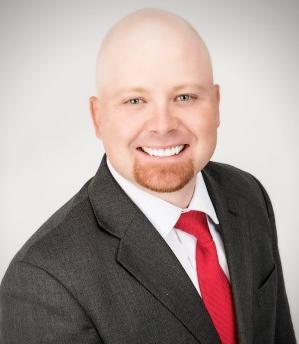A divided Arkansas Supreme Court ruled Thursday that plaintiffs may proceed with a class-action lawsuit that accuses Shelter Mutual Insurance Co. of illegally discounting payments for medical treatment provided to automobile insurance claimants.
In a 4-3 decision, the high court found that Pulaski County Circuit Court Judge Timothy Davis Fox did not err by certifying a class of plaintiffs whose medical payments were discounted by Shelter to account for payments the claimants had received from other insurance carriers.
The lawsuit filed against Shelter by Samuel Baggett and Jana Lee says those discounts violate an Arkansas Insurance Department regulation that governs the coordination of benefits.

“Shelter is the only insurer in Arkansas who reduces the benefits due to payments made by third parties,” Little Rock attorney Kenneth “Rusty” Mitchell said in an email. He is one of three attorneys representing plaintiffs in the lawsuit.
Mitchell disputed the insurer’s argument that not discounting medical payments for monies received by other insurers would provide claimants with double recoveries. He said “it’s the benefit of the bargain.”
“If a Shelter insured pays the coverage, and Arkansas law requires Shelter to pay medical … benefits despite the existence or applicability of any other coverage, the insured is just getting what he/she paid for.”
Both Baggett and Lee were injured in car wrecks and had policies that provided up to $5,000 in medical benefits. Shelter paid Baggett $2,000, but he contends he is owed the full $5,000. Lee said she incurred $4,000 in medical expenses, but Shelter did not pay the full amount.
“Like Baggett, Lee claimed this deficiency resulted from Shelter’s policy and practice of illegally deducting other plan payments from its reimbursements,” the Supreme Court opinion says.
Judge Fox certified a class consisting of all Shelter insureds whose medical payments were adjusted because of payments by other insurers or collateral sources since March 13, 2013, with no end date. Shelter Mutual appealed to the Supreme Court, making several arguments to assert that the class-action should not be allowed to proceed.
Shelter argued that the class certified by the trial court is invalid because there was no end date. The Supreme Court majority said, in an opinion written by Justice Rhonda K. Wood, that the lack of a closing date is not uncommon initially. As the case proceeds the court will “close the loop.”
Shelter argued that the determining class members from the group of insureds who have had their claims reduced because of payments from other sources is an overly complicated inquiry because it could include payments reduced because of pre-existing conditions, unnecessary treatment or unreasonable expenses.
The Supreme Court majority said class action complaints are always complicated, but it has allowed similar actions to proceed in the past. The opinion says discerning class members in this case would not be unduly burdensome.
“Instead, here a class member can be determined by reviewing whether the requested payment and the received payment were different,” the majority said.
Shelter also argued that Baggett isn’t a credible class representative because he was convicted of three felonies. Lee demonstrated during a questioning that she doesn’t understand the concept of “unjust enrichment,” so is not a suitable representative for the class, the insurer said.
The majority said the trial court had already decided that Baggett and Lee are credible and found no reason to second-guess. The bar is low, the majority said. The court even once allowed a mentally ill person to serve as a class representative because there was no evidence that her illness made her unable to act in the class’ best interest, according to the opinion.
Associate Justices Barbara Webb, Courtney Hudson and Robin F. Wynne joined Wood in the majority decision.
Chief Justice John Dan Kemp and Justices Karen R. Barker and Shawn A. Womack dissented.
In an opinion written by Barker, the minority said as the class is now defined Shelter Mutual would have to open each claim file to determine why a full payment was not made.
“Accordingly, contrary to the majority’s position, the class members are not ascertainable by reference to objective criteria,” the dissenting opinion says.
Was this article valuable?
Here are more articles you may enjoy.


 China Bans Hidden Car Door Handles in World-First Safety Policy
China Bans Hidden Car Door Handles in World-First Safety Policy  These Five Technologies Increase The Risk of Cyber Claims
These Five Technologies Increase The Risk of Cyber Claims  Berkshire Utility Presses Wildfire Appeal With Billions at Stake
Berkshire Utility Presses Wildfire Appeal With Billions at Stake  UBS Top Executives to Appear at Senate Hearing on Credit Suisse Nazi Accounts
UBS Top Executives to Appear at Senate Hearing on Credit Suisse Nazi Accounts 